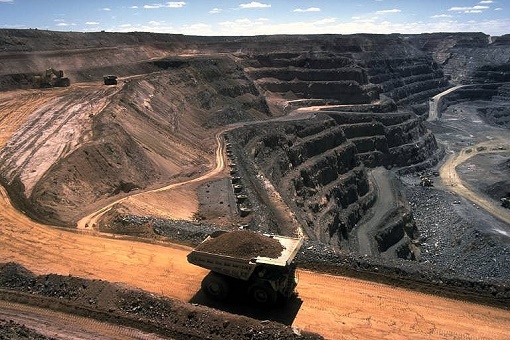The biggest financial news of the week, up until Greek Prime Minister Alexis Tsipras announced his resignation, has, arguable been George Soros investing the equivalent of £1.43 million in Arch Coal (NYSE:ACI) and Peabody Energy (NYSE:BTU), two coal mining companies that have have been struggling, having lost 98% of their value over the past several years. The irony of the investment is that Soros is not only one of the richest men in the world, but that he is also an inveterate and outspoken supporter of the theory of global warming.

That got me to thinking about coal – something that I had not thought much about since I was a young lad watching the truck dump coal down the chute to my grandfather’s coal bin. It didn’t take long for me to realize that Soros was tossing a few chips on the table, speculating that Arch and Peabody were in such bad shape that any recovery at all would make him a nice chunk of change. So much for Soros. But I kept thinking about the coal industry, especially about its future, both for production and investment, especially with declining demand for commodities and the battle that the UN is waging against fossil fuels with its Agenda 21.
My research led me to a report published this month by Citi (NYSE:C) that is a critical, in-depth assessment of the probability and the consequences of “a low carbon future.” The report is particularly timely in that the UN COP21 meeting is slated for this December in Paris. COP21 is the Conference of the Parties to the UN Framework Convention on Climate Change. The chief purpose of the meeting is to move Agenda 21 and other so-called climate change initiatives from voluntary to universal, legally-binding programs required for all nations.
If the UN has its way, its global-warming, limited resource scam could have a crippling effect on the global economy, especially for producers and users of fossil fuels.
Referring again to the Citi-sponsored report, I offer investors several of the insights gleaned from the report. What you do with them are up to you.
- Switching to a low carbon energy future means that significant fossil fuels that would otherwise have been burnt will be left underground. The development of the so called ‘carbon budget’ has led to the concepts of ‘unburnable carbon’ and associated ‘stranded assets’.
- Large, diversified mining companies such as Rio Tinto (LSE:RIO), Anglo American (LSE:AAL) and BHP Billiton (LSE:BLT) have either been exiting thermal coal operations or significantly rationalizing their businesses … heavily exposed mining companies appear to want to ride out the storm.
- The value of unburnable reserves could amount to over $100 trillion out to 2050.
- Stranded assets and unburnable carbon are becoming a significant issue for countries, industries, companies and investors.
- Investors are becoming increasingly active and engaged on the issue of stranded assets.
- Regulations could require the closure of certain operating assets, for example old or high emissions power stations.
- Regulatory constraints might add to costs, making assets economically unviable.
- Regulations might be enacted to prevent development or construction of certain new assets.
- Regulation might impose requirements such as emissions constraints, or for example, the adoption of carbon capture and storage, which would increase costs to the extent that potential projects may become unviable.
- Certain fossil fuel assets may not be developed, with demand and price forecasts too low (or risk assessments too high) to support project economics as described above. Premature closure of operations could also occur if weaker markets lead to negative operating cashflows.
Just because the report indicates these scenarios could develop does not mean that they will. I would be doing a great disservice if I did not point out that the report also addresses potential upsides, mostly with respect to a hope for greater efficiencies.
One thing is for sure. The calculations included in the report soundly debunk the other environmental scam being perpetrated on the public – the ill-conceived theory of diminishing resources.

 Hot Features
Hot Features













